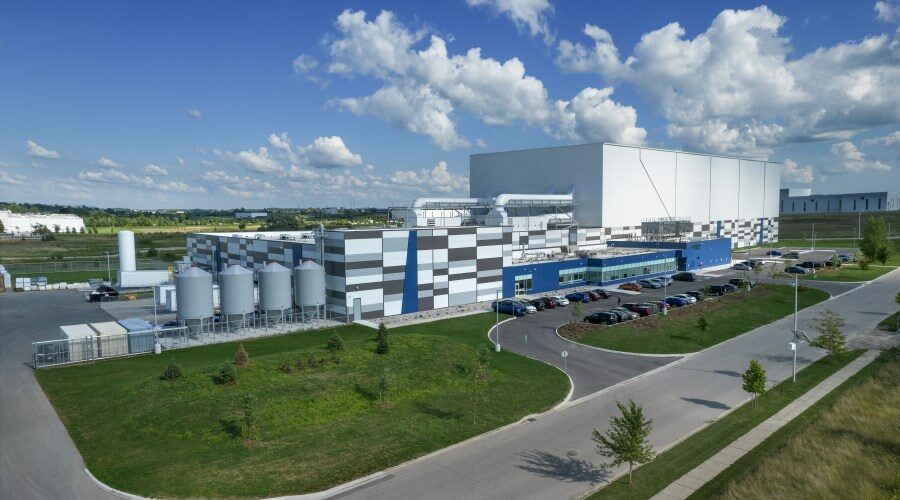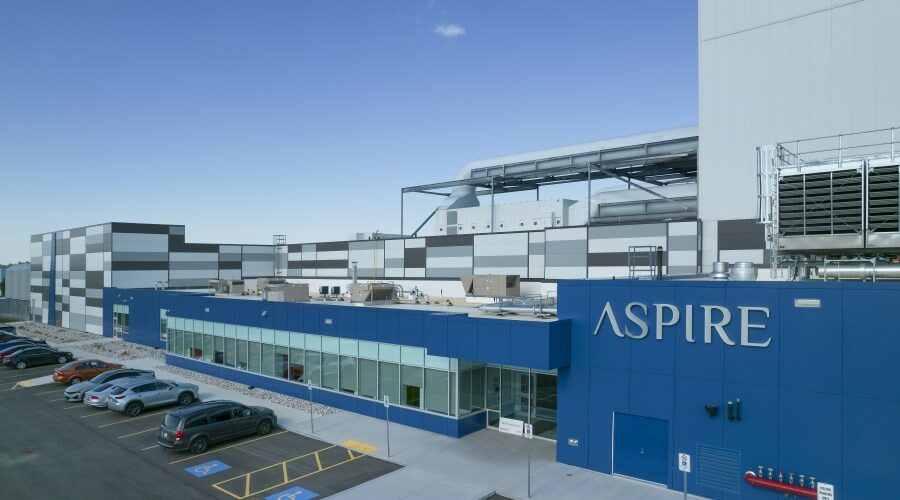The 165,000 square-foot Aspire Food Group cricket farm and processing center is the largest facility of its kind in the world. Graduate students from McGill University in Montreal founded the company and are embarking on a major expansion. Aspire Food Group set out to “pioneer sustainable insect agriculture for the good of all” through focusing on creating protein sources that utilize less space and natural resources than traditional farming methods. In 2013, the team won the Hult Prize for social entrepreneurship, securing $1 million in funding for the venture, which eventually became Aspire Food Group.
Its London, Ontario, facility produces almost two billion insects per year for distribution across the United States and Canada as a protein for both people and pets. The facility opened in 2022. EllisDon constructed the cricket farm, in part, using insulated metal panels from Kingspan and has achieved global recognition, as well as funding, from Sustainable Development Technology Canada for its innovative clean technologies.
“Our longer-term vision is to make sure that this is a protein source that can be available and affordable to genuinely address food insecurity in many countries around the world,” said Mohammed Ashour, co-founder of Aspire Food Group.
The farm utilizes an automated storage retrieval system, a new type of HVAC system, a 5G IoT network and an artificial intelligence solution recognized by UNESCO. These high-tech solutions are referred to as Farming 4.0 and accommodate the growing population, as farming technology has not evolved to withstand the demands.
Specifically engineered for controlled environments, Kingspan’s KS Shadowline panels maintain the constant temperatures needed for insect breeding and storage at the high-tech cricket farm. Insulated panels provided an optimal solution for keeping crickets at prime temperatures, especially in the frozen storage portion of the facility.
In furthering the project's goal of reducing embodied carbon, Kingspan panels are composed partially of recycled steel. The thermal performance of these panels works in concert with the HVAC system to reduce operational carbon emissions through superior thermal performance, requiring less energy to maintain the optimal temperatures needed for the manufacturing of this alternative protein source. Insulated metal panels also allowed the builder to create colorful, eye-catching accents in the exterior design that makes the Aspire facility stand out among the London landscape without compromising on efficiency.
As population growth increases so does the need for more sustainable food sources. Traditional protein sources like beef are among the highest producers of greenhouse gases leading to the necessity of alternative protein sources. With over 1,200 brands and manufacturers of alternative protein sources, projects like the Aspire Food Group facility will become more common. IIMPs play a crucial role in these projects as they allow freedom of design and the necessary thermal environment for production while further reducing operational costs and carbon emissions.




